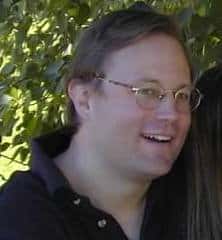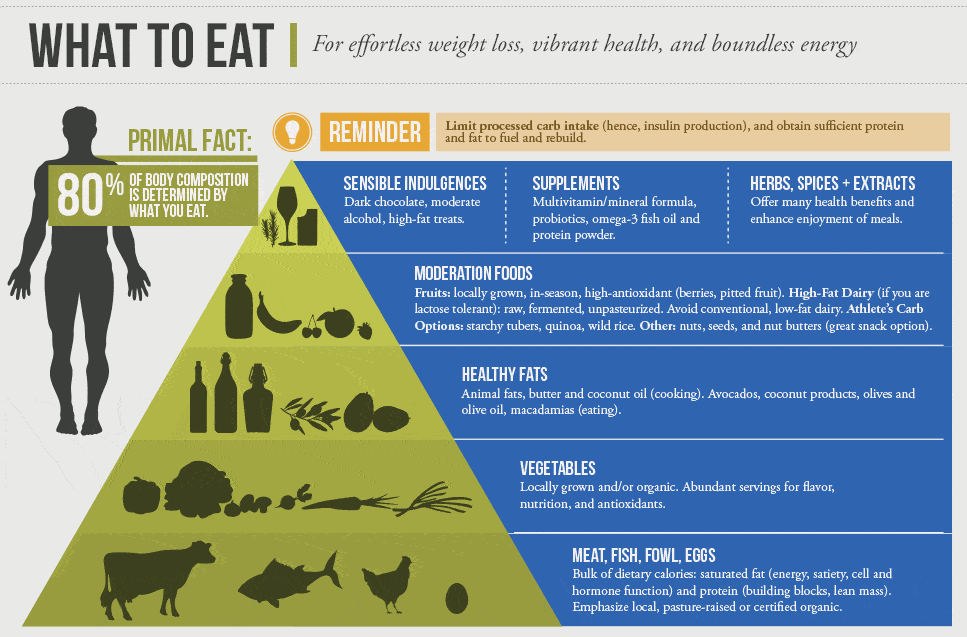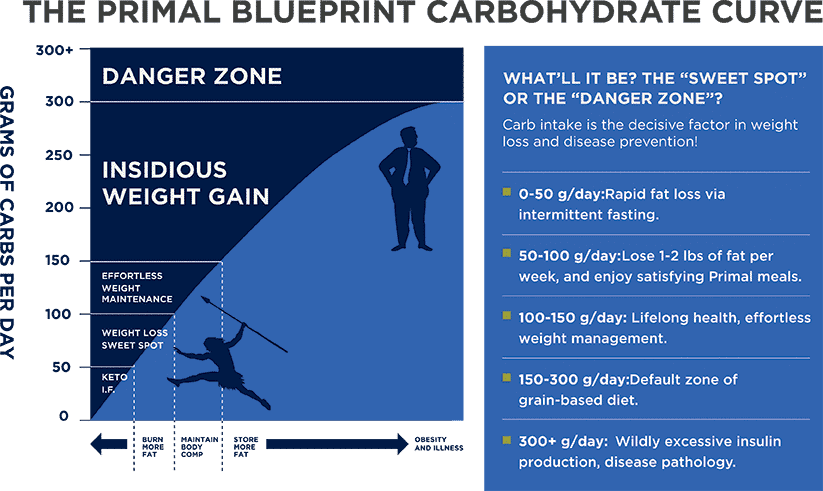If you’re like most of the people around the world who had their lives rocked by the COVID pandemic, staying healthy in 2021 is likely one of your resolutions for the coming year.
And if so, ‘losing weight’ is probably on your list.
Most of us carry more inches around the middle than we’d ideally like and worry about the long-term health risks that can come with being overweight. And with COVID-19, excess weight is a co-morbidity that can dangerously worsen outcomes for those infected.
Yet most New Year’s weight loss attempts meet with failure, usually after only a few weeks. The truth is: dropping unwanted pounds and keeping them off is hard.
BUT…it’s doable. In fact, the pathway to achieve a healthy bodyweight is surprisingly straightforward. It just requires disciplined commitment. Weight loss programs overwhelmingly fail because of psychological reasons or misinformation. If you pick a program based on good science – and keep your mind right while pursuing it – positive results are inevitable.
In this article, which builds on previous advice I’ve written on the topic, I’m going to recount my own experience (with evidence for you to judge) with finally losing the pounds that had for years stubbornly refused to leave my middle. The keys to my success weren’t complicated nor expensive. And I firmly believe that anyone, regardless of age or situation, can deploy them to similar results.
Why Believe Me?
For those wondering whether they should believe me, take a look at the Before and After pictures below:
You should listen to me because I’ve taken this journey.
That’s me in both pictures. In my late 30s on the left and my late 40s on the right.
I know what it’s like to be far too overweight and health-challenged.
I know how overwhelming the idea of self-transformation can seem when you feel poorly about yourself. And how deflating the setbacks along the way can be.
But I also know that success is achievable. Much more so than most realize.
Because I’ve gone through the process myself.
It’s not rocket-science. But it does requires substantial discipline and commitment.
The good news is: those are fully within your control.
And trust me, if I was able to do this, you can do.
Weight Loss Is All About Nutrition
As the title of this section states, losing weight has everything to do with diet.Yes, following an active fitness regime is a very important complement (and essential for general health). But exercise alone is not effective for material weight loss.
The hard truth is that if you want to lose weight, especially to the point where it will be visibly noticeable, diet is going to be 80% to 90% of the work involved.
Now, that may sound like a downer. No one likes the idea of being on a “diet plan”. But I encourage you to look at it from another point of view. This is actually really good news. There are few things you have more control over than what and how much you put in your mouth. You have the agency here. You don’t have to rely on anyone else; you don’t have to wait to be chosen; you don’t have to pass any test to participate – you have full power to chart your own destiny here.
And you’ll find that a weight-loss diet doesn’t equate to deprivation and suffering. I’ll talk more about this in a moment, but eating healthier often means eating tastier, more satisfying meals. And it can frequently – and non-intuitively – mean eating more, not less.
The point here is: Try to put aside your dread. It’s not going to help you, and much of what you’re fearing is likely wrong.
What to Eat to Lose Weight
An important note: I'm going to explain here the kind of diet that I followed to lose weight, because it worked. It worked for me, and I've seen it work for dozens of other folks I know who have followed it. I've personally witnessed the transforming results.What I’m not saying is that this is the only diet for losing weight effectively. Or the best one. There are a number of other plans that are worth consideration. But I know for sure this one works, which gives me the confidence to share it with you.
So, do you have to follow some complicated program made up of pricey powdered shakes or arcane ingredients like panda spleen? No. Not at all.
The simple mnemonic to keep in mind is: the closer to its natural state, the better the food likely is for you.
As gross as this may sound, if it can go rancid within a few days = good. If it can live in your pantry for months (because it’s filled with preservatives) = not so good.
You want to eat foods that supply the natural building blocks your body needs to function well: notably protein, saturated fats, fiber, quality carbohydrates, and anti-oxidants.
And you want to minimize the intake of processed foods that trigger your body’s insulin response. The worst offenders are refined flours (found in most processed carbohydrates) and refined sugars (found in almost everything).
It’s the insulin response that sabotages the efficacy of most diets. When we eat sugars or foods that easily break down into sugars (most carbohydrates), our bodies use these sugars for immediate energy and store any excess sugar along with everything else we’ve eaten into our muscle and fat cells for use later. Not only that, but as our insulin levels begin to normalize after a sugary meal, a craving for additional sugar occurs which often leads to overeating of unhealthy foods. To add insult to injury, eating sugars/carbs encourages your body to retain water – leading to additional weight gain.
So, what to eat? I find the guidance offered by Mark Sisson’s Primal Blueprint diet (quite similar to the Paleo and Zone diets) very useful. I highly recommend using his book The Primal Blueprint Cookbook for meal planning, but the chart below offers an easy-to-understand framework for where to place your focus:
(click on the image for an expanded view)
Animal protein plays a big role in the Primal/Paleo/Zone diets, especially for those engaged in concurrent strength-training. Note the focus on pasture-raised, grass-fed, organic, wild-catch and local sources. Similar to humans, the animals we eat are as healthy as their diets. If animals we eat were not nourished well, how can expect their meat to nourish us any better?This focus on meat does not mean that vegetarianism and veganism are to be eschewed. There is much evidence for the benefits of plant-based diets – though those on them do need to pay more attention to ensuring they consume enough protein during the day for healthy body function.
How Much Should I Eat to Lose Weight?
It's tempting to view losing weight as simple math: that to lose weight you just need to eat fewer calories than you burn off.While that is not necessarily untrue, it can lead to unhealthy decision-making.
It’s important to realize that all calories are not created equal. Intake of “good” calories can actually catalyze weight loss, and conversely, “bad” calories will trigger weight gain.
As for bad calories, the big baddy to watch out for is processed carbs (sugars, grains, etc). Anything that spikes insulin production. The Primal Blueprint program encourages us to consume less than 150 grams of any kind of carbs per day:
(click on the image for an expanded view)
Now, if you're like me, you're challenged to think of your food serving sizes in terms of grams. Not to worry.There are apps out there now that do all the thinking for us. I use MyFitnessPal. You simply type in the food you’re about to eat, and it offers you a selection of serving sizes to choose from. Pick one, and all of a sudden the app can tell you how many grams of carbs/fat/protein/etc it has. The app will help you set targets for your daily food intake and track your progress during the day to let you know how little (or how much) you have left in your eating budget. It’s a great way to quickly and easily get an exact answer to the question: How much should I eat today?
And there are days where I find it challenging to consume all the app tells me I’m supposed to, especially protein. If anything, there are more days where I feel like I’m eating more than I’d rather vs days where I want to eat more. And this is coming from a guy who really enjoys food.
On top of that, eating such a well-balanced, low-insulin-producing diet is much more sating. Without the swings in blood sugar, hunger cravings nearly disappear. Whereas my eating schedule used to be dictated by how aggressively my stomach demanded to be filled (which I would often try to appease through snacking between meals), now I eat by the clock. It’s not uncommon for me to forget about a meal if I get busy with a project, because my stomach rarely reminds me the way it used to.
My Top Steps for Losing Weight
If you're looking to lose weight this year -- in a healthy way -- here are the top steps I would advise taking, based on my own experience:- Stop eating refined sugars and processed carbs -- This is the single biggest step to take. Ridding your diet of sugary foods is challenging (because sugar is added to nearly everything), but most of us can live without the worst offenders like sodas and desserts. It's the grains that were the hardest for me to give up. Breads, pastas, cereals -- they taste good, have great mouth feel, and are everywhere in the American diet. But as we've discussed on this site in numerous podcasts, they not only promote weight gain, but they trigger inflammation which fosters joint degradation and cardiovascular disease. If you have yet to rid your diet of sugars/grains and you start doing so now, you'll likely see notable weight loss within 2 weeks from this one step alone.
- Cut down your dairy and alcohol intake -- You don't have to go to zero, but consume these sparingly. Most of us realize the dangers of too much alcohol, but here's a quick summary of why dairy should be limited in a human adult diet.
- Eat whole foods -- In a nutshell, that's meats and vegetables, nuts and seeds, some fruits, little starch and no sugar. The literature on nutrition these days is vast, and can be a little overwhelming for the uninitiated -- but the Primal Blueprint infographics shared above tell you most of what you need to know. Good resources for expanding your nutritional knowledge are our diet-related podcasts with Robb Wolf, Mark Sisson and David Seaman. Nutritional programs worth investigating are the Paleo, Primal and Zone diets. It sure won't hurt to consult with a professional nutritionist to discuss your personal health situation and goals.
- Track everything you eat during the day -- This is called 'keeping a food diary'. The logic is that recording what you eat makes you much more mindful of what you decide to put in your mouth. This actually works. It forces you to ask yourself: Do I really need/want that? Tracking also helps you monitor how much you've consumed through the day, so that you're in much less danger of mindlessly overeating. You can use a standard notebook as a journal, but I prefer using an app like MyFitnessPal, which I mentioned earlier. It makes it dead easy to not only track your food intake, but to know what type of food (protein, fat, carbs, etc) you have left still to eat in the day vs what you've already hit your daily limit on.
- Prepare your own meals whenever possible -- Making your own meals has many benefits. First off, it's cheaper than buying prepared food. It also helps you develop a sense for "building a meal" based on its nutrients -- you're choosing foods that will complement each other not just by taste, but also by fuel type. I highly recommend preparing multiple meals at once to eat later in the week, which will minimize the risk of making bad food choices in the moment, because you have smart options at the ready.
- Eat a light, early dinner -- Willpower acts very much as a muscle does. It gets stronger the more it gets exercised. But it also tires throughout the day, which is why most "bad" eating happens at night, when our mental resolve is sapped. Americans often eat 50% or more of their calories late in the day, going to bed on a full stomach that spends all night figuring out how to store the mass of food just ingested. You should aspire to the opposite. Eat the majority of your calories in the first half of the day while you're active and need energy, and let your digestive system shut down at bedtime without burden. Personally, I found that switching to a light dinner, or sometimes skipping dinner entirely, had one of the biggest impacts on dropping my weight.
- Recruit a support system -- This is a big one. Studies show that the #1 success factor most correlated with weight loss, particularly weight loss that is maintained once achieved, is the presence of a good support system. If possible, find a few friends who are willing to commit to losing weight along with you. Having people who can commiserate during the tough days, who encourage you when your willpower is wavering and praise you as you make progress, is a HUGE advantage in remaining committed to your diet plan. MyFitnessPal helps with this, allowing you and your friends to track each others' eating habits and offer encouragement. In addition to friends, make sure your family is aware of your goals and has your back. You not only want their emotional support, but you want to make sure that the food choices at your dining table won't be working against your interests.
- Stop using food as a reward or a social centerpiece -- For many of us, food is more than simply fuel; it's an emotional crutch. We turn to certain meals to reward ourselves, or make us feel better when we're depressed. Food is often used as the reason for gathering together socially. This kind of non-essential eating is so wired into our psyches that it's hard to escape. But it doesn't have to be that way -- we can replace food's non-nutritive role with other substitutes. Oftentimes, eating can be replaced by another activity without any loss of social enjoyment or self-soothing. Instead of that big group Sunday brunch, why not invite everyone on a hike? Bring along a picnic of sensible foods and leave the Belgian waffles behind. With a little practice, you'll find plenty of ways to exchange unneeded calories for memory-making experiences.
- Weigh yourself/take measurements regularly -- As they say in business, "if it doesn't get measured, it doesn't get moved". Take a before photo. Record your weight each week. As you begin to see results, you'll be inspired to commit further to the program to protect the progress you've made. And if you're not seeing progress after a few weeks, there's likely a flaw in your approach. Take an honest hard look at your behavior -- are you following all of the steps above, without sabotaging yourself anywhere? If you really believe you are, then consult a nutritionist or a physician -- they can help assess the situation, or determine if a larger health issue may be at play.
- Replace your clothes as you lose weight -- As you lose inches around your waist, invest in new clothes. Not only will they make your progress more visible, but they'll serve as an "early detection system" to warn you if you start lapsing in your eating behavior. Myself, I've dropped from a size 36 waist to a 33. If my new pants ever start feeling tight, it's an immediate signal to me to pay more attention to my food habits. Usually within a day or two of mindful focus, the tightness recedes. If I were wearing my old pants, I'm sure I'd mindlessly loosen my belt one more notch and not notice the reversion until I'd packed on several more pounds.
- Don't let perfect be the enemy of 'good enough' -- Keep in mind that Rome wasn't built in a day. Nor will your new body. The process you're undertaking needs to be sustainable. It shouldn't feel like a death-march, nor an "all or nothing" venture. You will make mistakes. You will have set-backs. You will be at birthday parties where it's expected you'll have a bite of cake, or raise a glass in toast. Build in an expectation of and tolerance for these eventualities and don't let them derail your commitment to progress. The objective is to move forward more than you move back. If you do, you'll lose the weight over time, in a natural-feeling procession that will be manageable to maintain.
Nutrition Is Just One Part Of Functional Health
Now, my personal health transformation wasn't due to just diet alone. Ideally, yours shouldn't be either.Your progress will be materially helped by concurrently engaging in the other key pillars of functional health:
- a fitness regime (especially focused on constantly varied functional movement at relatively high intensity)
- mobility
- stress management
- practicing good sleep hygiene
- a support community
In Part 2: Achieving Full Functional Health we make available the full replay video of Dr Stagliano’s presentation. It provides an excellent and actionable overview of the steps that will benefit your body and mind most from here.
As Schopenhauer put it: “Health isn’t everything; but without it, everything else is nothing.”
So there really is no better investment you can make in 2021 than improving and safeguarding your own health as well as the health of those you love.
Click here to read Part 2 of this report (free executive summary, enrollment required for full access).
This is a companion discussion topic for the original entry at https://peakprosperity.com/how-to-lose-weight-2/


